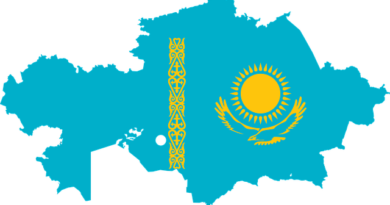Reciprocal Access Agreement (RAA)
Context:
Reciprocal Access Agreement (RAA) signals that middle powers are willing to play a more active role in the Indo-Pacific.
Contents
About Reciprocal Access Agreement (RAA)-
- It is a bilateral defense and security pact between the governments of Australia and of Japan that provides for shared military training and military operations.
- This treaty is only Japan’s second such agreement while the only other military pact is with the United States, that dates back to 1960.
- It establishes in particular procedures between Japan and Australia for the cooperative activities conducted by the defence force of one country while visiting the other country, and defines a status of the visiting force.
- With its entry into force, the Japan-Australia RAA will facilitate implementation of cooperative activities between the defence forces of the two countries and further promote bilateral security and defense cooperation.
- It will also pave the way for an enhanced contribution by Japan and Australia to the peace and stability of the Indo-Pacific region.
- The pact was signed because of concerns that China was exhibiting increased belligerence especially over the South China Sea region, including militarization of disputed features, and dangerous coercive use of coast guard vessels.
Significance
- Changing dynamics:
- It fortifies trends that are part of the changing security architecture in the region.
- Moving away from supremacy of US:
- It marks the move away from a US-centric outlook towards a greater focus on bilateral ties and regional groupings.
- Japan’s increasing role:
- It is also a sign that Japan is willing to play a more proactive role in the region.
- For Japan, this marks an even greater shift, of a piece with the recent evolution in its outlook and global image. Thus far, Japan’s only major defence ally had been the US.
- Recently, both Vietnam and the Philippines have looked to Tokyo to provide a bulwark against Beijing, signalling a greater acceptance of Japan’s role as a strategic player. And Tokyo is now expanding its ties further: Reports suggest it will seek RAA-like agreements with the UK and France as well.
- Australia’s efforts:
- It has been enabled, among other factors, by Australia’s willingness to stand up to China on the question of a free and open Indo-Pacific and rules-based global order, despite their deep economic ties.
Reciprocal Access Agreement: Why significant?
- Apart from being of strategic significance for Asia and the Indo-Pacific, the agreement fortifies trends that are part of the changing security architecture in the region.
- It marks the move away from a US-centric polices towards a greater focus on bilateral ties and regional groupings.
- After the Second World War, the security order in Asia and the Indo-Pacific was marked by the US’s bilateral ties with various players, which was in contrast to American strategy in Europe, where NATO played a key role.
- The Quadrilateral Security Dialogue (or the Quad), with India, Japan, Australia and the US, the AUKUS, and now the RAA between Japan and Australia all point towards a more empowered and committed regional strategic network.
- Both Australia and Japan are continuously standing up to China on the question of a free and open Indo-Pacific and rules-based global order
- It is also a sign that Japan is willing to play a more proactive role in the region.
Conclusion
- The Quadrilateral Security Dialogue (or the Quad, with India, Japan, Australia and the US), the AUKUS, and now the RAA between Japan and Australia — two treaty allies of the US — all point towards a more empowered and committed regional strategic network.
- India, for its part, has done much to expand bilateral, trilateral and regional cooperation in the security domain — it has “2+2” ministerial dialogues with both Tokyo and Canberra.
- India must step up this engagement, as well as reach out to other players in the region.
Source: Indian Express
You can find many articles on INTERNATIONAL RELATION (part of GS II) in our website. Go through these articles share with your friends and post your views in comment section.
Discover more from Simplified UPSC
Subscribe to get the latest posts sent to your email.



